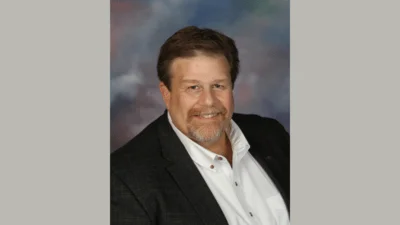Sen. Jil Tracy (R-Quincy) had one main concern at Tuesday's joint House-Senate Veterans' Affairs Committee hearing: how to end Legionnaires' disease.
But the sad news, the senator was told by Centers for Disease Control and Prevention Associate Director for Epidemiological Science Sam Posner at the hearing on the 13 deaths since 2015 at the Illinois Veterans Home in Quincy, is that the disease cannot be stopped.
“Eradication of biofilm is virtually impossible,” Posner said of the substance Legionnaires' bacteria forms, most often in water pipes. “That is why the flow of water is so important in a water-management plan because slow flow gives the opportunity for biofilm to develop and Legionella to grow and transmit.”

Posner was joined by Illinois Department of Public Health Director Nirav Shah and Illinois Department of Veterans' Affairs Director Erica Jeffries in testifying at the four-hour long hearing that came on the heels of Gov. Bruce Rauner checked into the facility Jan. 3 and meeting with U.S. Sen. Dick Durbin (D-IL) on Jan. 5 to discuss future safety measures at the 200-acre site.
“Dr. Shah, you mentioned we recently had an outbreak of two cases of Legionnaires' disease in one of Chicago's hospitals, does the Illinois Department of Public Health require them to test every day for Legionella?” Tracy asked.
According to the director, facilities are not mandated to test for the bacteria.
“What we require is that every facility have a water-management plan in place,” Shah said, adding if sites do test for Legionella they are encouraged to follow proper protocol after detection. “Legionella bacteria are everywhere, and one of the things in public health is that when you look for things that are everywhere, you are going to find them.”
Tracy then asked if all residents at Quincy were tested for the disease after Aug. 21, 2015, the day that the first two deaths related to Legionnaires' were confirmed. Jeffries said vital signs checks were increased to every four hours to check residents for temperature rises, which is a sign of the infection.
Tracy said she is concerned about the disease breaking out across the state and nation. “I am wondering if we are ever going to be able to stop deaths in this country or state from Legionnaires' disease.”
Posner said no.
“The problem is we have an aging population and infrastructure and we are seeing an increase in Legionella due to both of those things,” Posner said.
According to the CDC expert, the adaptation of strong water management systems is the only way to prevent the spread of the deadly disease.
“It is a very complex situation, outbreaks are one small part of that,” Posner said.
Tracy then wanted to know if the last death in fall 2017 was directly related to Legionnaires' only, to which Jeffries said she could not answer due to the Health Insurance Portability and Accountability Act.
“We have to be careful what we can reveal,” Shah confirmed.





 Alerts Sign-up
Alerts Sign-up